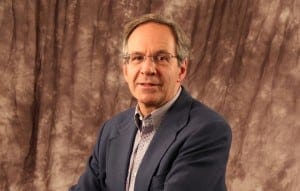 Nearly 24 million addicts, less than 10 percent seek help
Nearly 24 million addicts, less than 10 percent seek help
By Michael Campbell
The stories are too frequent. George loved a good party, and his humor and smile were always engaging. He drank a lot, but no one mentioned it until after he went home. It was easier that way. At least it was until the night he caused an accident, and was killed along with the three young women in the other car.
Mary knew that her son was using drugs and that it was getting worse. When she confronted him the discussion would get nasty. She should have demanded that he move out if he refused to get help, but she never asked, because she was worried that he had nowhere to go. Month after month his addiction got worse, and family life was chaos, but no one did anything until he ended up in the emergency room from an overdose of heroin.
These are stories of enabling. People abusing drugs and alcohol and destroying their lives – and too often the lives of others – while the people around them become observers or willing accomplices. Too often addiction festers and grows because the addict’s friends and family allow the addiction to go unchecked. Recent government reports tell us that almost 24 million people in this country suffer from addiction to drugs and alcohol, yet fewer than 10 percent are getting help for their disease. No other condition is so routinely ignored.
The Center for Disease Control estimates that 30 people die each day from car accidents caused by alcohol, and even more fatalities are the result of drugs. Some estimates put the number at 25,000 people killed each year by drug and alcohol related accidents with a further 700,000 injured. Allowing the addict and the alcoholic to continue to drive, work, and avoid getting help carries a heavy cost. One research group concluded that adults in the United States who drink too much get behind the wheel of a car 112 million times each year. It makes me wish there was a subway near my home!
So what is enabling and why do we do it? By its simplest definition, enabling is doing something for others that they should be doing for themselves. Addicts and alcoholics are masters at getting others to extend sympathy and support. Addiction has three defining symptoms – denial, minimization, and rationalization – and they are used to great effect to protect addictive behavior. As long as family and friends keep giving in, saying yes, helping out, addiction can grow and flourish.
The addicts treated at St. Joseph Institute tell endless stories of how the people in their lives have bailed them out, loaned them money, given them chance after chance, covered for them at work, and turned a blind eye. As they enter into recovery, they invariably wish the downward spiral had ended sooner. The cost in terms of relationships, careers, finances, and self-esteem can be almost unbearable. Had they not been enabled, the journey into darkness might have ended much sooner.
Enabling is a silent epidemic that needs to end. Unfortunately, there is too little help being offered to those who are caught in the web of enabling and need to find a way out. It’s a big number. Some estimates suggest every addict and alcoholic adversely impacts four other people. If correct, that means 100 million Americans are being affected and may in some way be enablers.
Communities, churches, social service organization, and treatment centers must do more to help the families and friends who are affected by addiction. Al-anon, a support group for families of those who are addicted, can be a good resource. But this is not enough. We need to start a public dialogue on breaking the patterns of enabling that allow addiction to flourish. We need to offer more education on co-dependency, and some of the other issues that underlie enabling. We need to recognize the patterns of enabling behavior and stop doing over and over the things which make addiction worse.
Let’s begin with a resolution that we will not continue the actions that enable addiction to adversely affect us. We will not let an impaired friend get behind the wheel. We will not lie or make excuses for someone who has an addiction. We will stop avoiding the need to talk with someone about their drug and alcohol abuse. We will encourage people with a problem to get help – right now.
If we want to stop the growth of addiction we need to stop enabling. We all have a part to play in the solution.
Michael Campbell is the Co-Founder and President of St. Joseph Institute, an addiction treatment facility located near State College, Pennsylvania. www.stjosephinstitute.com.
Throughout the year, our writers feature fresh, in-depth, and relevant information for our audience of 40,000+ healthcare leaders and professionals. As a healthcare business publication, we cover and cherish our relationship with the entire health care industry including administrators, nurses, physicians, physical therapists, pharmacists, and more. We cover a broad spectrum from hospitals to medical offices to outpatient services to eye surgery centers to university settings. We focus on rehabilitation, nursing homes, home care, hospice as well as men’s health, women’s heath, and pediatrics.







